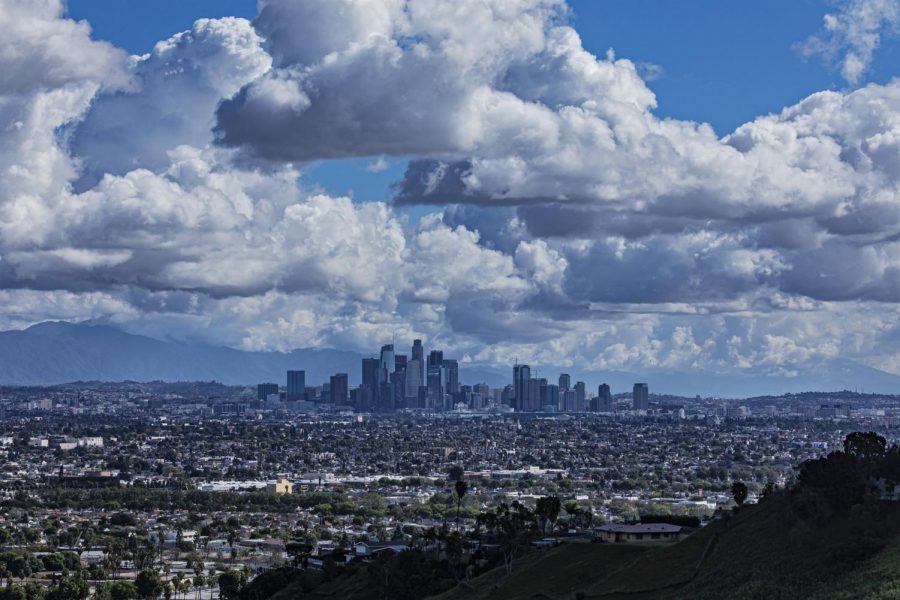Global Pandemic is Changing the World for the Better
This picture of the Los Angeles skyline shows there is less smog above the city than there was before the Coronavirus lockdowns. Photo provided by NBC News.
May 11, 2020
Due to the Coronavirus outbreak, countries across the world are putting themselves under lockdown in an attempt to control the spread. Restrictions have been set on social gatherings, and non-essential businesses have been closed. Some nations have even banned international travel. What do these restrictions mean for the environment?
The environment has, in fact, been benefiting from the Coronavirus measures. Many have viewed the circumstances as a break for the earth. One of the main environmental benefits occurring across the globe is a decrease in air pollution. Carbon emissions have been noticeably reduced in some of the most polluted areas of the world since there are more people staying at home, less cars on the roads, and less planes in the sky. According to NBC News, China has emitted 25% less carbon in a four-week period in 2020 than in the same period in 2019. Reduced air pollution can also be seen in European countries, such as France and Italy. The air of major U.S. cities, including Los Angeles and New York, is even becoming visibly clearer. According to BBC, pollution levels in New York have decreased by almost 50% from the same time last year.
Besides air pollution, littering and water pollution has also been reduced greatly since lockdowns began. One of the most notable changes in water pollution is in Venice, Italy. According to Insider, the canals in Venice have become so clear that the bottom is now visible. Since Italy was put under national lockdown on Mar 10, photos have been taken of fish, seaweed, and jellyfish thriving in the newly clear canals. Venice specifically has been experiencing this because tourism has been banned now that the country is in lockdown. The decrease of boats on the river and the reduced littering has allowed the water to clear up. Littering in many places has plummeted since more people are staying inside their homes. But will these positive impacts remain once the pandemic is over?
According to BBC, it is likely that these impacts will be reversed once lockdowns and closures are lifted. Many feel that once measures are lifted, people will travel as much as they can to make up for their time at home. With this, carbon emissions, littering, and pollution could return to how it was before the Coronavirus outbreak. However, in this time of change, new habits are forming. Considering countries have been on lockdown for several weeks, people could be getting used to not driving their car or traveling. Some believe that with major areas receiving new life and hope, people will be inspired to keep up the positive developments.







